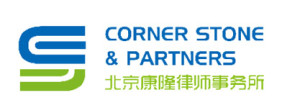E-commerce is a type of business model based on trading platforms on the internet, where consumers buy goods and services worldwide via cross-border platforms. With the popularization of electronic payments, cross-border e-commerce has become a new point of economic growth. At the same time, the contradiction between the regionalism of trademarks and the globalism of cross-border e-commerce platforms pose a new problem for the development of global intellectual property (IP) rights.
Taking trademarks as a case, this article treats the possible infringement in cross-border e-commerce activities in China through parallel imports and offers advice to avoid it. However, counterfeit or passing-off is beyond the scope of this article.
Current status in China
According to the interpretations made by the Beijing Higher People’s Court about whether parallel imports constitute infringement of trademark rights in several legal issues deserving attention in current IP case trials concerning trademarks, “the right to prohibit others’ use … is by no means formulated for trademark owners to monopolize the circulation of commodities. That is, the ‘exhaustion of trademark right’ rule should be one of the fundamental rules for free competition in the market.

Partner
Corner Stone & Partners
“On this basis, in the event that the alleged infringing goods really come from the trademark owner or its authorized subject, the trademark owner has realized the commercial value of its trademark from the first sale, and thus can no longer prohibit others from performing resale or doing reasonable commercial marketing. Otherwise, the process of establishing normal and free competition orders in the market will be hindered. For this reason, parallel imports should be judicially accepted and not considered constituting infringement of trademark rights.”
The “exhaustion of right” rule helps to protect free competition. A trademark helps consumers see the inherent connection between goods or services and the suppliers, while the trademark owner has the exclusive right to distinguish its goods or services from others.
In practice, some parallel importers sell the authentic parallel imports by unscrupulously using the trademark for publicity campaigns. They use the trademark just the same as the trademark owner, causing consumers to mistakenly consider that the parallel importers have every right to use the trademark, or that there is some authorization relationship, or a specific association, between the parallel importers and the trademark owner, which means the inherent connection between goods or services and the suppliers is damaged, and the trademark owner may suffer profit losses as a result.
This usage of trademark by the parallel importers goes beyond proper scope. A few judicial precedents in China have showed that if the parallel importers use a trademark beyond proper scope, the courts have ruled it as trademark infringement and punished the parallel importers.
Some advice
In cases of cross-border e-commerce companies using trademarks of parallel imports in China, referring to the current judicial interpretations and relevant precedents, we advise that:
(1) The parallel importers explicitly inform consumers of the possible differences between their imported goods and non-parallel imports (locally manufactured, or manufactured with authorization) in terms of quality standards, maintenance and return services;
(2) If the parallel importers and non-parallel importers are both based on a cross-border e-commerce platform, separate and distinct sections or channels should be set up to avoid consumers being misled;
(3) The parallel importers use their own trade or company names properly to avoid any unnecessary connection between their trade names and the trademarks of the goods from parallel imports; and
(4) The parallel importers specify the origin of the goods they are selling, avoid using the trademarks as the main feature or design on their sales pages, and the trademarks shall not be used prominently.
Finally, the issue of trademark protection in cross-border e-commerce cannot be settled by the laws and regulations from one jurisdiction or region. It is necessary for the relevant international organizations to make positive efforts in establishing acceptable and applicable uniform standards for multiple jurisdictions and regions.
John Xia is a partner and patent attorney at Corner Stone & Partners

Corner Stone & Partners
1905, Tower B, Tian Yuan Gang Centre,
No. 2 Dongsanhuan North Road, Chaoyang District,
Beijing 100027, China
www.cornerstoneip.com.cn
Contact details:
Tel: +86 10 8446 4600 (Ext. 816)
Email: john.xia@cornerstoneip.com.cn



























